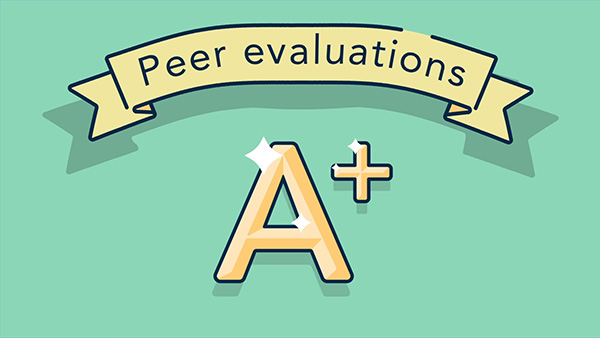Published by Mila Urosevic on May 26, 2017

We are all aware of the importance of feedback, and yet feel discomfort whenever we need to face it, both ways. Although asking for feedback gets more difficult to overcome than giving it, being evaluated is as equally important as evaluating others. On the other hand, it might seem easy, but giving feedback is far from simple - it’s a skill that needs to be mastered to produce desired results. If you feel a slight tension about this topic, don’t worry, you’re not alone. A good news is it’s possible to become comfortable in both pair of shoes.
In this quick guide, you will learn how to effectively deliver critique to your peers, avoid confrontation while staying on point and realize right questions to ask to become more efficient. Even though it might look easy to follow, it’s a process that needs to be practiced before mastered. Read on and get the most out of your team communication and productivity potential!
Why is feedback so important?
Regardless of you being at your first job or running your own company for years, feedback is equally important for everyone. It is an essential part of everyone’s career path and a prerequisite for both personal and professional development.
If it’s constructive with the aim for improvement, expressed properly and received without getting into a defense, feedback helps us grow, learn from our actions, recognize similar situations in the future and get prepared to react adequately. It also improves communication and sets clear expectations among peers.
When you give feedback
As mentioned, feedback should help us improve something and do things better than we are doing them at the moment. Make sure to always keep that in mind when talking to another person and evaluating their actions or behavior.
Before we start discussing tactics for evaluating your peers, let’s first observe situations when you should not give any feedback at all:
Frustration: Think about the main reason why you are doing it at all - is it for improving a process and achieving better results or is it just for you to vent? If it’s the latter one, think twice - big egos never bring positive results to the table.
Relevance: Are you sure you are the right person to put comments on a specific subject or problem? If you just disagree with your peer’s beliefs or actions, but you are not sure whether sharing your thoughts will be beneficial for the team or will contribute to results, pass it to a competent person.
Difference: Is your teammate slowing you down or just has a different approach to a problem and way of working? If someone pushes your buttons only by having beliefs or habits conflicting with yours, cool down. You can gently chat about it when the timing is right, but don’t bring it up as a problem if it doesn’t affect you, your work or your team in any way.

I am not going to give you a formula for giving constructive feedback that will most certainly produce desired results. The effectiveness of the whole process depends on many variable factors, such as subject, degree of the problem, personality of parties involved, relationship, timing, and many other. However, there are some general rules which will help you communicate your concerns effectively and ensure the conversation doesn’t get toxic:
Focus on good things first and bad second
There must be something good you can find about the person you are giving feedback to. Emphasize what they do right and gently point out to problematic matter. I am not suggesting to avoid a problem or to be sleazy, but rather not to be harsh and offensive because it usually gets counterproductive. Make clear what is not right about a person’s action or behavior (what happened), why it isn’t good (what are the consequences) and your suggestions for improvement, if applicable (how to fix it / where to next).
Use “I” statement instead of “You”
Whenever you assess someone’s work or behavior, always use “I” statement. What I mean by this? Instead of pointing fingers, express how you feel about their behavior or what you think they did right or wrong. By doing this you avoid a blaming tone, which prevents others from getting defensive. Expressing your thoughts and feelings increases the chance that others will really think through your words.
Practice “And” and “What if” instead of “But”
As mentioned above, focus on good things first whenever evaluating your team member. But, every time you say “but” after a good part, everything you previously said loses its power. It sounds slimy and fake and often offends your coworker’s intelligence.
For example, “I really like how you did X! What if we do Y the same way?” or “Getting X done was fantastic! And I believe Y would produce great results if you apply the same approach.” sound much better.
Comment behavior, not personality
This doesn’t mean you should only focus on providing feedback about work and avoid personality. There are situations when someone’s attitude is hurting the team and needs to be corrected for the better of all. But let the other person know you are talking about their behavior, not personality. Emphasize that a problematic subject lies in what they do, not what they are. Actions create problems and they are correctable, not human beings and their nature.
Be specific
Think thoroughly about a problem you plan to raise up. Don’t change topics or bring up previous disagreements to support your argument. Avoid talking about things from the past. Stick to the point, be specific and support your opinion by real arguments and facts.
Think about timing
Be careful with this one. Even though it’s always recommended to raise your hand right away instead of sweeping your thoughts and feelings under the rug, it’s definitely suggested to consider the situation. Timing is of essence when it comes to giving feedback. Not every comment is adequate in every situation. Never criticize in front of others if a critique is not related to them, consider other person’s moment, and overall use your common sense to estimate the situation.
If it happens that you need to push back providing feedback, also make sure you do it as soon as the right time comes. Although it feels hard to bring it up out of the blue, do it anyway to avoid confrontation on the same problem during some future arguments. It will feel tempting to use it as an extra weapon in those moments as a consequence of your suppressed frustration.
Positive vs. negative feedback
Many people have the aversion of providing negative feedback, which is as equally important as positive. While positive feedback fosters motivation, negative improves performance, if delivered correctly. When providing positive feedback, express appreciation, and when giving negative, show concern instead of anger or dissatisfaction.
Don’t get personal
It can get difficult to separate personal from professional when giving feedback to your teammates. Things can easily escalate into a tense discussion full of negative emotions, defensiveness and resentment. Have this in mind to help you stay focused on the core problem and keep calm without being aggressive or getting personal.
When you ask for feedback
Asking for feedback is as much important as giving it. Once you lower your ego, understand that evaluation is helping you to get better and your team to achieve goals, you can really learn from it and improve. Of course, always seek feedback from relevant people who are competent to appraise your work and recommend improvements.
Keeping your focus on relevant elements for evaluation gets even more tricky when you need to ask for it than provide it. Being specific in what to ask is invaluable in receiving the right assessment. If you don’t structure the segments in which you would like to be evaluated, you allow your teammates to potentially confuse you with the information they believe is relevant, instead of observing things which you will most likely benefit from. Organize your thoughts before asking your peers for opinion and follow your structure to get the most out of their feedback.

The flow of your evaluation will undoubtedly depend on a type of project, desired outcome, your role and many other factors, however keep in mind the following questions as a general guidance while structuring your feedback strategy:
- How am I going?
- What am I doing good / what are the areas of improvements?
- What’s my impact on other?
- How my attitude aligns with the team/company culture?
All components are related to each other. Your evaluation is not complete if they are addressed incompletely or separately. Modify your questions according to your specific situation, but always stay focused on the objective with your contribution in mind.
Important to know:
Opinion can never be objective. It’s always subjective simply by belonging to an individual. Your coworkers will often have different approaches to a problem and express conflicting standpoints about the same subject, and that’s ok. This doesn’t imply that some angles must be wrong, or that one belief must be applicable for everyone and blindly followed, it just means we have different values and experiences. Of course, data and statistics must present some facts and numbers which are objective, but an interpretation, opinion and recommendations always belong to an individual or one group of people and are usually subject to change.
When you get caught between opposed thoughts on your work, just observe, listen, respect different points of view, understand where they are coming from and, ultimately, make your own decision, which is the best way to learn and grow. Others are not there to make choices for us, but rather help us become aware of ourselves, our behavior and impact on others, so that we can make our own choices and develop both personally and professionally.
Final Thought
Regardless of you evaluating your peers or being evaluated by them, the whole feedback procedure shouldn’t be done once the main assessment event gets completed. There is always room for improvement, so consider it as an ongoing process with a never-ending development in mind.
Make sure you check in for progress regularly with your team. Observe the improvements and add additional recommendations, if needed. On the other hand, self-evaluation is of utmost importance for our growth. Appraise your progress compared to feedback you were given and check in how it aligns with your team’s opinion. Over time, it will help you enhance your self-awareness and eventually become comfortable in evaluating yourself without needing supervision. Of course, don’t forget to encourage your team to do the same.

